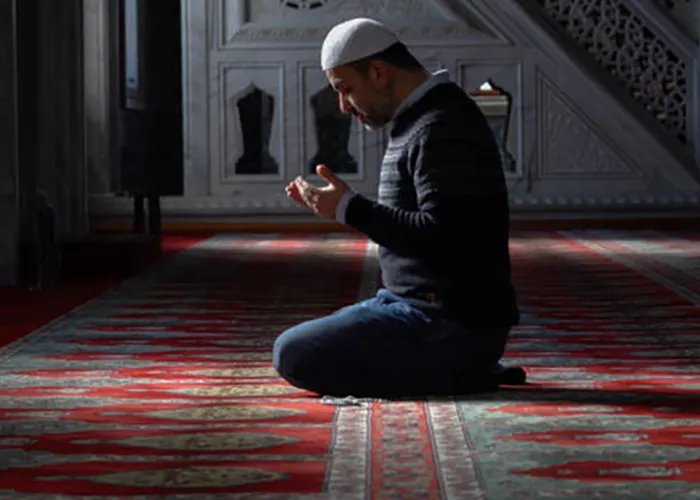Fatwa Panel of the Week – Volume02 Issue36
Rulings on Obligatory Acts of Prayer
According to the fatwas of the Grand Marājiʿ: Grand Ayatollah Khamenei, Grand Ayatollah Sistani, and Grand Ayatollah Makarem Shirazi (may their shade be extended)
The Standing Position (Qiyām)
| Ayatollah Khamenei | Ayatollah Sistani | Ayatollah Makarem Shirazi |
|---|---|---|
| 1. Standing during Takbīrat al-Iḥrām and before going to Rukūʿ is a pillar (Rukn) of prayer. If omitted even unintentionally, the prayer is invalid.
2. Standing during the recitation (Qirāʾah) and the Tasbīḥāt of the third and fourth rak‘ahs, as well as after Rukūʿ, is Wājib but not Rukn. If omitted intentionally, it invalidates the prayer. If omitted forgetfully, the prayer remains valid. 3. One who is able to stand and has no excuse must stand from the beginning of the prayer until going into Rukūʿ. Also, after Rukūʿ and before Sujūd, one must stand upright. 4. If one forgets Rukūʿ and sits after reciting Hamd and Sūrah, and then remembers, they must stand up and go into Rukūʿ from a standing position. If they go directly into Rukūʿ from sitting, the prayer is invalid. |
1. Same as Ayatollah Khamenei’s Fatwa.
2. Same as Ayatollah Khamenei’s Fatwa. 3. Same as Ayatollah Khamenei’s Fatwa. 4. Same as Ayatollah Khamenei’s Fatwa. |
1. Same as Ayatollah Khamenei’s Fatwa.
2. Same as Ayatollah Khamenei’s Fatwa. 3. Same as Ayatollah Khamenei’s Fatwa. 4. Same as Ayatollah Khamenei’s Fatwa. |
Duties of the Worshipper While Standing in Prayer
| Ayatollah Khamenei | Ayatollah Sistani | Ayatollah Makarem Shirazi |
|---|---|---|
| 1. When saying Takbīrat al-Iḥrām or reciting, one must not walk, lean, or bend to one side. As a precaution, avoid body movement, unless out of necessity or forgetfulness.
2. While reciting any obligatory Dhikr in prayer, the body must remain still. This also applies, as a precaution, during recommended Dhikr. If one wishes to move slightly, they must stop reciting while doing so. |
1. When standing for Takbīrat al-Iḥrām or for recitation, one must not walk or bend to one side. As a matter of obligatory precaution, the body should not be moved, and one should not lean on anything voluntarily. However, if done out of necessity, it is permissible.”
2. Same as Ayatollah Khamenei’s Fatwa. |
1. Same as Ayatollah Khamenei’s Fatwa.
2. Whenever, during prayer, one wishes to move slightly forward or backward, or shift the body a little to the right or left, nothing should be recited. However, the phrase ‘Bi-ḥawliLlāh wa quwwatihi aqūmu wa aqʿud’ (‘With Allah’s power and strength I stand up and sit down’) must be recited while rising.” |
Recommended (Mustahabb) Acts While Standing
| Ayatollah Khamenei | Ayatollah Sistani | Ayatollah Makarem Shirazi |
|---|---|---|
| 1. It is recommended to: keep the body upright, shoulders relaxed, hands on thighs, fingers together, gaze at the place of Sujūd, distribute body weight equally on both feet, maintain humility and submission, and avoid stepping forward or backward. | 1. It is recommended, while standing, to keep the body upright, let the shoulders drop, place the hands on the thighs, keep the fingers together, fix the gaze on the place of prostration, distribute the body’s weight equally on both feet, maintain humility and submissiveness, and avoid moving the feet forward or backward. For men, it is recommended to keep the feet apart by a distance between three fingers and one hand-span, whereas women should keep their feet together. | 1. Same as Ayatollah Khamenei’s Fatwa. |
Rulings for One Unable to Stand During Prayer
| Ayatollah Khamenei | Ayatollah Sistani | Ayatollah Makarem Shirazi |
|---|---|---|
| 1. One who cannot stand must sit for prayer. However, if they can stand by leaning on something, standing is obligatory.
2. One must stand for as much of the prayer as they can without undue hardship. 3. If one can stand only for Takbīrat al-Iḥrām, they must say it standing. Similarly, if they can stand after reciting, they must go into Rukū from standing. 4. If one expects to be able to pray standing later in the time, they must wait as a matter of precaution. 5. If someone prays sitting at the beginning of the time and later gains strength to stand, they must repeat the prayer. But if they were hopeless about recovery and prayed early, and then regained strength, repetition is not required. |
1. Same as Ayatollah Khamenei’s Fatwa.
2. Same as Ayatollah Khamenei’s Fatwa. 3. Same as Ayatollah Khamenei’s Fatwa. 4. Same as Ayatollah Khamenei’s Fatwa. 5. If one performs the prayer at the beginning of its time and later, before the time ends, gains the ability to stand, the prayer must be repeated. However, if at the beginning of the time one had despaired of being able to perform the prayer standing, and thus prayed sitting, and later regained the ability to stand, it is not necessary to repeat the prayer.” |
1. Same as Ayatollah Khamenei’s Fatwa.
2. Same as Ayatollah Khamenei’s Fatwa. 3. Same as Ayatollah Khamenei’s Fatwa. 4. Same as Ayatollah Khamenei’s Fatwa. 5. Same as Ayatollah Khamenei’s Fatwa. |
editor's pick
news via inbox
Subscribe to the newsletter.




